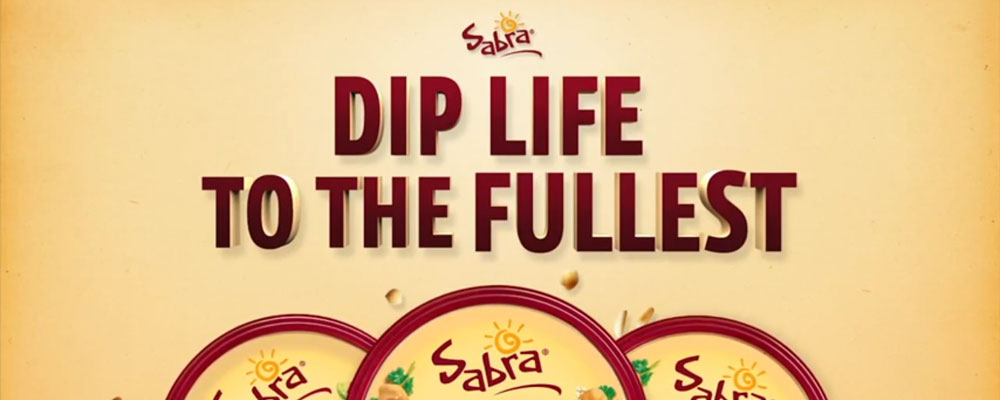There is no end of chatter in the press and on social media about how brands are rising to the challenge of an ever-changing media world. Less is said about how marketers are adapting to the world’s more fundamental changes of movements and melding of cultures. While the latter is still often addressed as “multi-cultural marketing,” one brand, Sabra (Sabra Dipping Company is a joint venture of U.S-based PepsiCo, Inc. and Strauss Group, Ltd., headquartered in Israel) is taking what would until recently have been viewed and marketed as a Middle Eastern food and promoting it to the fabled melting pot of Middle America with what might best be called “post-cultural marketing.” A recent academic paper on the subject of multicultural marketing cites this definition of multiculturalism: “the preservation of different cultures or cultural identities within a unified society, as a state or nation.” But rather than marketing that seeks to offer comfortable preservation of the past, Sabra is, in essence, looking beyond the cues of cultural identification and preservation to create a benefit-oriented pitch free of the typical cultural baggage. A cross-cultural or even post-cultural marketing program, if you will. Brandingmag recently interviewed Ken Kunze, Chief Marketing Officer at Sabra to get an inside look at the “Dip Life to the Fullest” campaign, and the brand’s growing success (growth so promising that it is even causing shifts in agricultural production in some parts of America, just to help meet the demand).
Brandingmag: Your sales reportedly grew 18% last year. Do you see that growth driven more by demographic changes, that is, growth in ethnic groups who are traditional users of your products, or attitudinal changes, cross-cultural exposure to your products, and greater acceptance or incorporation of cross-cultural influences in American lifestyles?
Ken Kunze, CMO Sabra: For sure it is the latter. We are introducing Americans to hummus. While we see many trends that are positively affecting our business, we are driving the results by aggressively sampling hummus, building awareness and as a result driving household penetration. We are literally taking hummus to the people. We a have a fleet of sampling trucks that have given out almost 30 million samples in the last three years. There is a huge population of consumers who are looking to discover new and different flavors and foods and to share them with friends and family. Some of it based on the number of people who consider themselves foodies and some of it is the mainstreaming of culinary influences. People are looking for “better for you” snacking options, smaller meals, vegetable-based snacks, plant-based protein, and gluten free all while having something that tastes great. It is about introducing Americans who are more adventurous eaters and who are open to try new and different to a great tasting, satiating, better for you snack. And the taste is rather addicting. Once people try it, they love it. For the slightly less adventurous, we believe they need a bit more a nudge and more basic information about what it is and how to use it.
BM: Is your US opportunity being replicated elsewhere… that is, is this a global phenomenon, or something driven by the inherent cultural mix of the US, and its shift away from a culturally dominant ethnic majorities?
KC: In more developed markets where you have an educated, somewhat affluent population open to explore fresh flavors from around the world, we are seeing similar opportunities. Many of the trends are global in nature.
BM: What you sell – hummus, salsa, and guacamole – would once have been thought of as ethnic foods… do you still think of them that way, in part or whole?
KC: No, we would not consider Sabra an ethnic food company. We are a fresh dip and spread company. Our mission is to inspire consumers to try fresh flavors from around the world – to literally share the world through food. For us it is more about bringing new and interesting flavors from around the world to your table in a fresh, convenient, authentic, table ready way.
BM: Do your consumers still see them that way – and how has their perception changed in recent years?
KC: No, consumers today do not see them as ethnic foods the way you are implying in your question. We are in the deli of every supermarket and club store across America. Our consumers think of Sabra as being more worldly rather than ethnic. Salsa replaced ketchup years ago as America’s favorite condiment.
BM: The advertising of ethnic products often appeals more to tradition, whereas yours speaks to new adventures – what specific consumer learning inspired or informed that strategic posture?
KC: First, given we don’t consider our products ethnic food. That is probably the jumping off place for why we are approaching it differently. One of the consumer insights we found is that consumers are bored with their regular, everyday choices. It is very easy to fall into a rut when it comes to what to make for dinner or what to eat next. For some it becomes an arduous task. Fans of Sabra look to the brand to mix it up with new and interesting flavors and products that may not have been traditional American staples.
For me, great marketing is always driven off of strong consumer insights. The art is to be able to communicate it in an emotionally engaging way that keeps the product core to the message. While our flavors and products are rooted in authenticity and tradition, the brand is playing is a much bigger space.
BM: What marketing avenues have been most effective in crossing cultural divides? For example, are you finding social media to me more diverse in its sharing and consumer discovery patterns that the “real” world?
KC: The point you are getting at is the interconnectivity of disparate cultures. The world is getting smaller all the time and technology really helps accelerate the trend. So yes, the newer mediums are enablers to explore, discover and share. Cultural diversity has never been higher. Interest in new and different cuisines has never been greater. You can go to almost any major metro area and find a breadth of ethnically diverse restaurants and the fusion of culture and tastes. It is more like alchemy. America has always been known as the melting pot and the diversity of who we are has never been more interesting.
Ken Kunze, CMO, Sabra Dipping Company
For Sabra, I really think it is more about positioning the brand from a more worldly and open perspective that is aspirational for many and is a reflection of the small world we live in today.
BM: Advertising agencies in the US still have a reputation for lacking ethnic diversity… or being siloed in one ethnic sphere or another. Have you found it difficult to find agency partners that “get” the cross-cultural journey?
KC: The clients are probably just as guilty in terms of what they ask for and how diverse their organizations are. It is more about being really clear about the insight, why it is important to the brand and the business, and how we see it coming to life.
BM: You’re using “food ambassadors” who seem to specialize in mixing up the tastes of the world… what’s the response been so far?
KC: The response has been really positive. It is really on trend and it is core to reaching the leading edge of early adoption, spreading the word among like-minded folks and establishing a base to build off of as we grow awareness, household penetration and usage. It is a great example of how new mediums can help small brands take off and become discovered. At the end of the day, our products are fun for you and better for you, but they need to taste great first and foremost. From 2007 through 2012, Sabra Dipping Company has grown revenues over 400% or greater than 5 times 2007 revenues largely though consumer adoption. We believe we are creating something very special and it’s been a ton of fun to make it happen.
Featured image: landlopers.com

